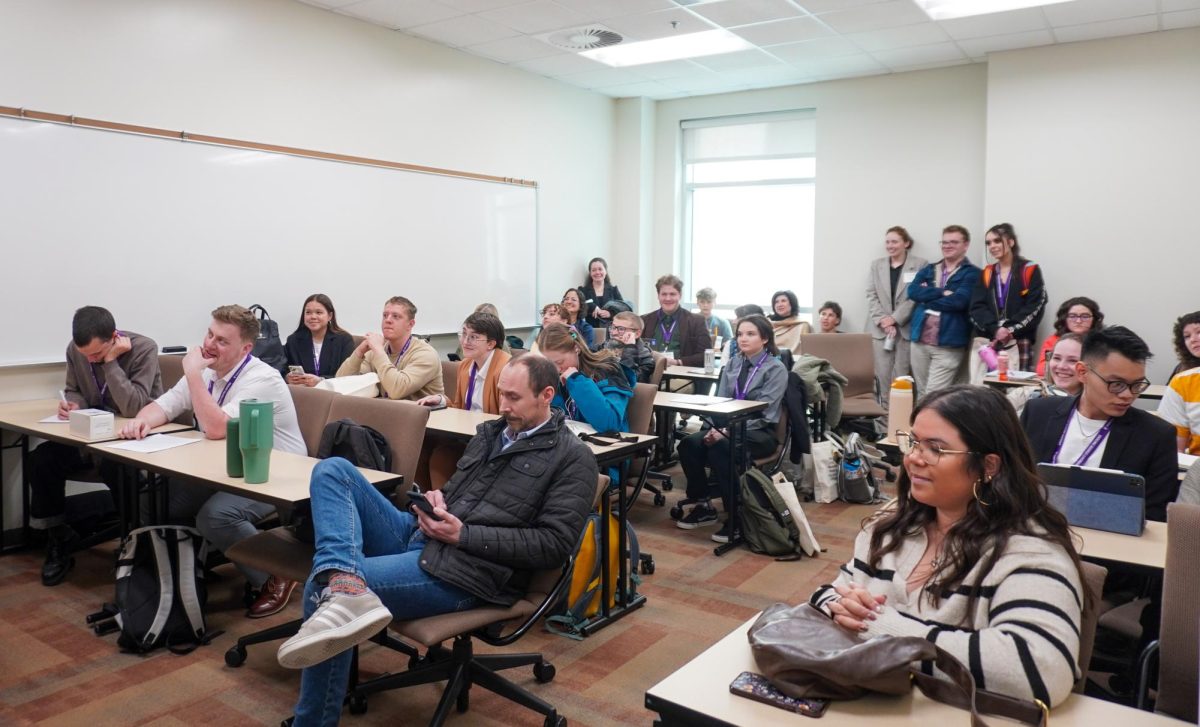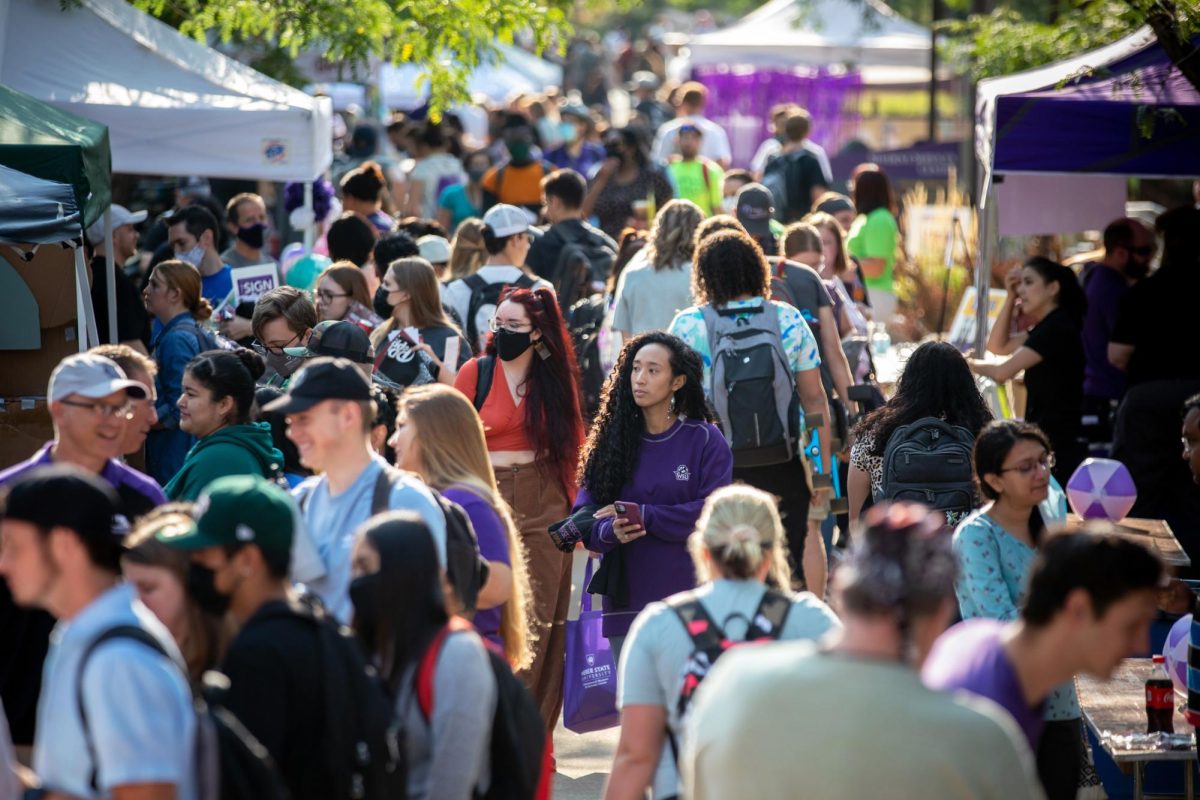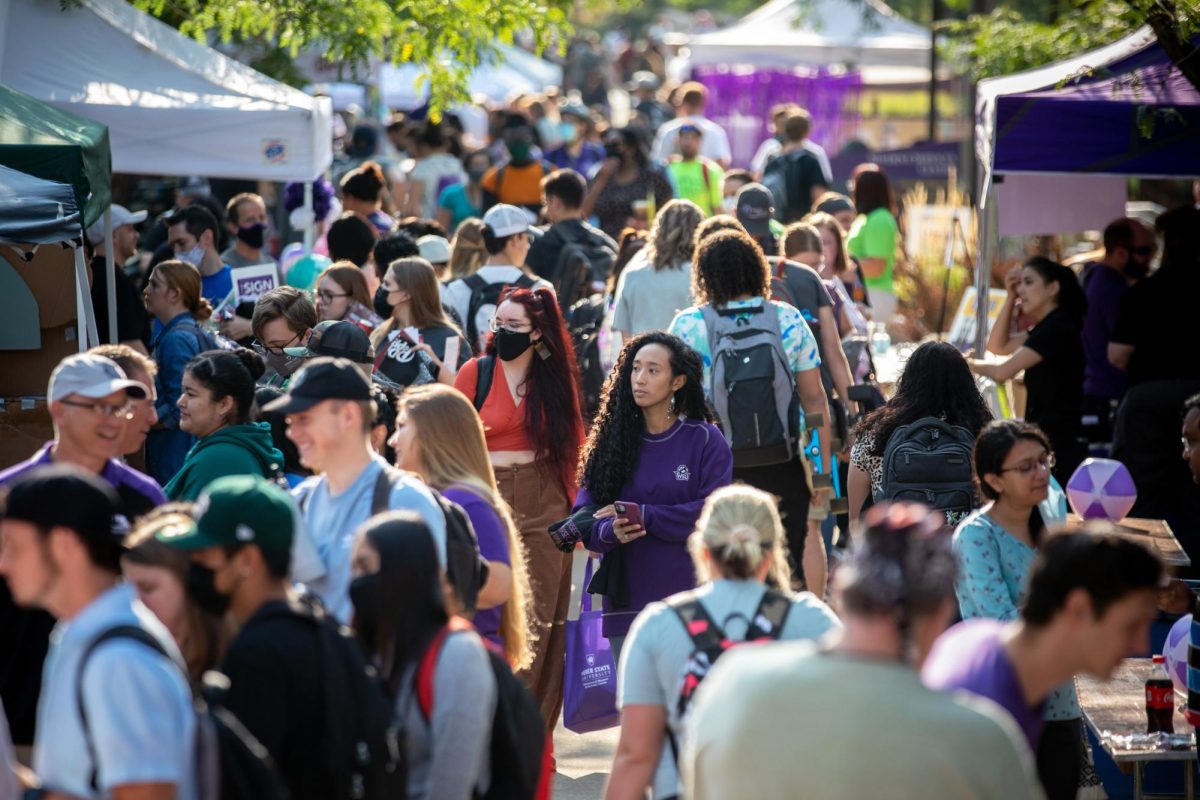On Sept. 26, 2014, 43 students were protesting in Ayotzinapa, Mexico when local police took them into custody. To this day, they are still missing.
In honor of those students, Latinos United Promoting Education and Civic Engagement (LUPEC) held a candlelight vigil on Nov. 20.

“I believe that this vigil is sending a powerful message,” said Belia Alvarado, an education access and outreach representative here at Weber State, via email. “It is bringing parents, students and community members together to bring attention to what has happened to these students and their families.”
On an order from the mayor, Mexican police abducted 43 students who were protesting for justice in the education system.
Later, human remains turned up in a river, supporting the rumor that the students were turned over from the police to gang members.
It is believed that the gang murdered, burned and dumped the remains of the students into the river, where they were found.
DNA tests are being conducted and nothing is sure yet. Many families refuse to believe that their children are dead, while others have accepted the certainty that the remains belong to the students, Mariano Castillo wrote for CNN earlier this November.
“The truth needs to be brought forward,” Alvarado said, “These families need to know what happened to their children; changes need to implemented.”
Unlike in the U.S., freedom of speech in Mexico is very limited. Only certain groups of people get the full right to speak their minds.
Members of the community came together, all wearing white, a traditional mourning color. Upon arriving at the vigil, grey ribbons were tied around everyone’s forearms, another Hispanic symbol of mourning.
“I’m a member of the Mexican community and it’s really important to me because it’s where I come from,” said Sofia Quetzalli Garza, a student who attended the vigil. “It’s really cool that the community will come together and do this and that it’s not just Latinos here. It inspires me to get out there myself, but at the same time it’s scary.”

Students at the vigil held signs with encouraging messages of support written on them.
“For me, this is for the families, so that they know they aren’t alone,” Alicia Giralt, a women’s studies professor at WSU, said. “This is a sign of support for the moms and the dads who lost their kids.”
WSU psychology professor Azenett Garza spoke at the vigil. In her comments, she brought attention to the fact that in 2013 alone 123,470 children were kidnapped and 98.8 percent of those disappearances have not been investigated.
“This could bring about some policy changes,” Luis Lopez, the president of LUPEC, said. “There has definitely been inspiration as it relates to social expression of the rejection of the Mexican students and the oppression of the government.”













